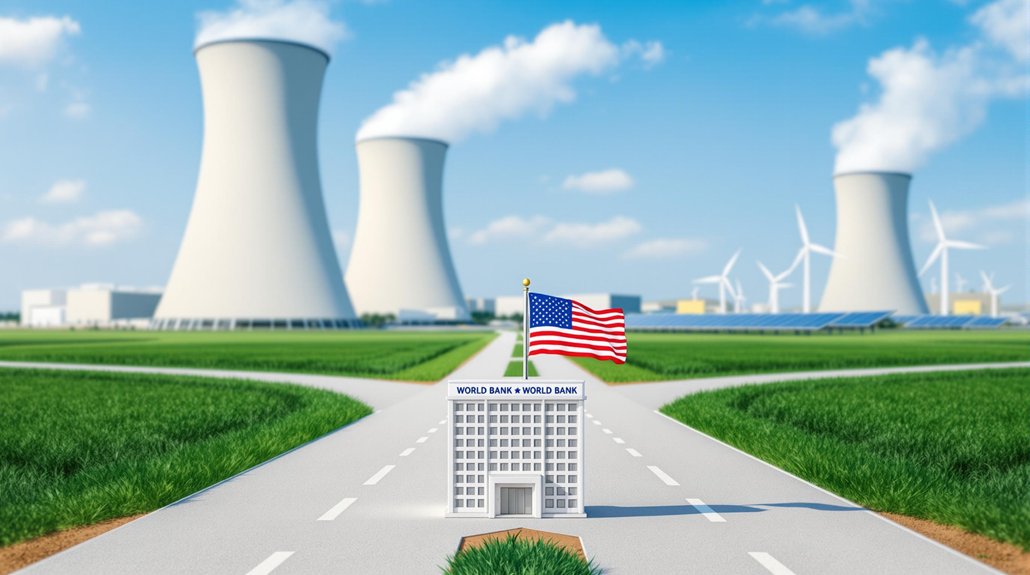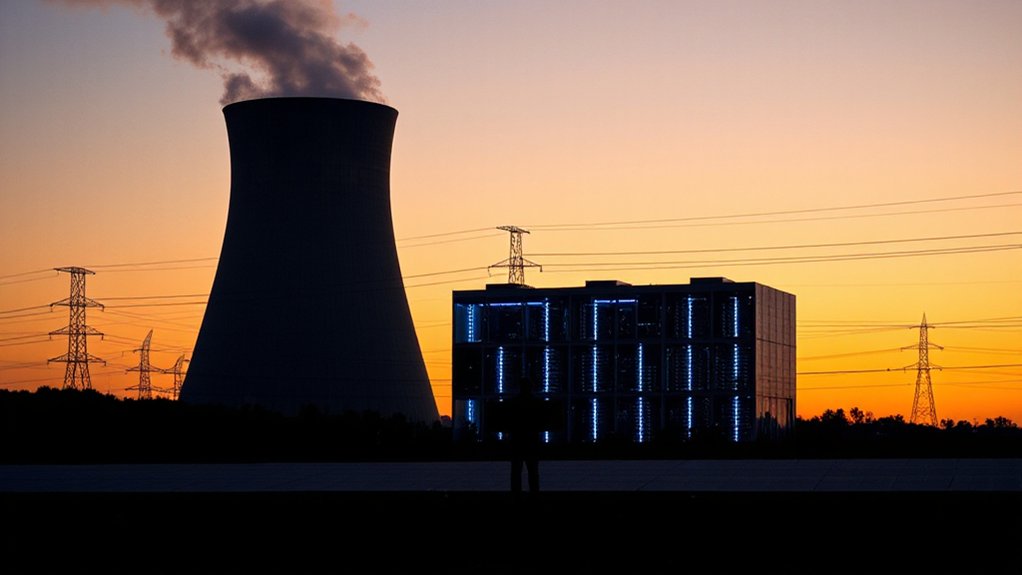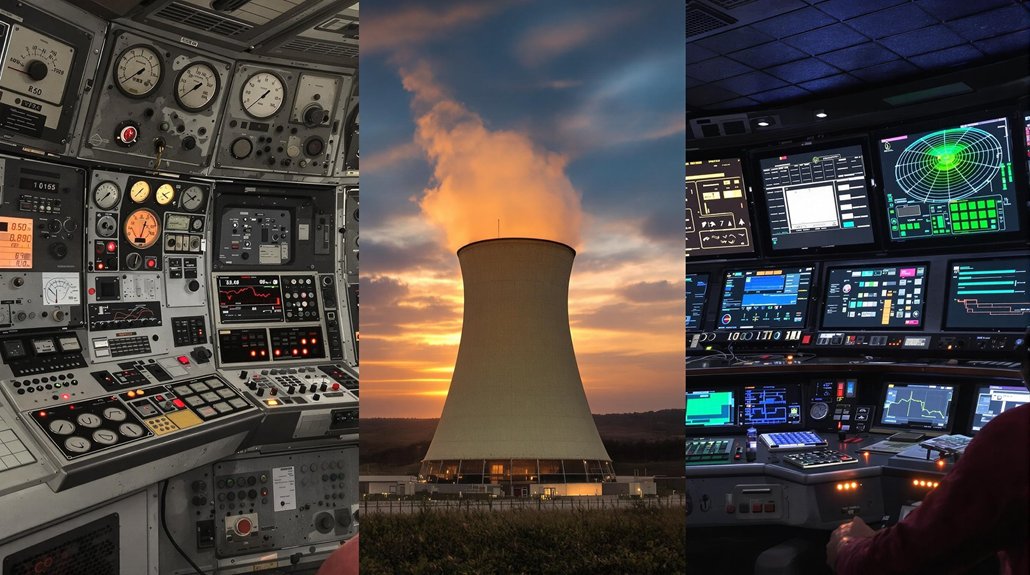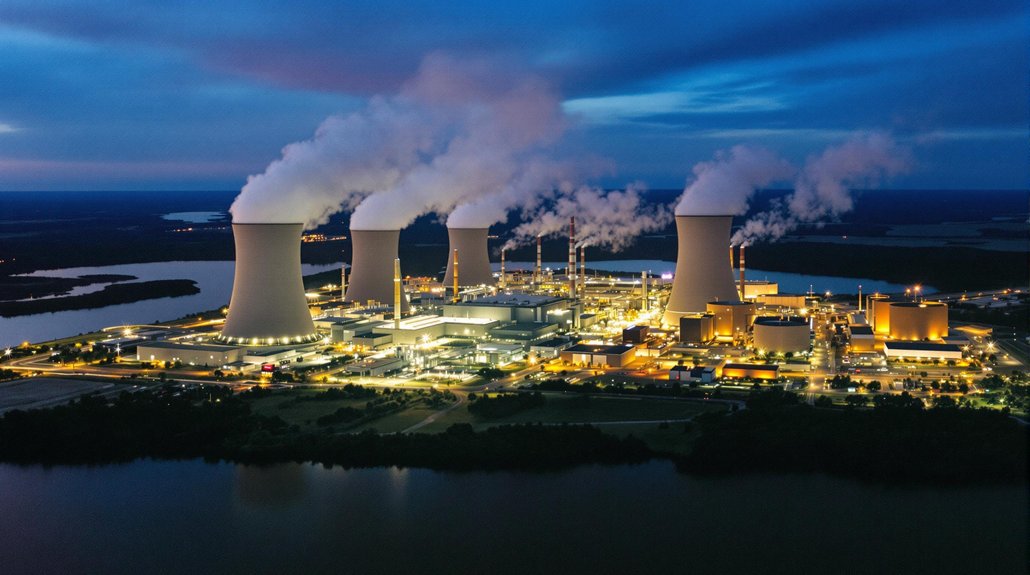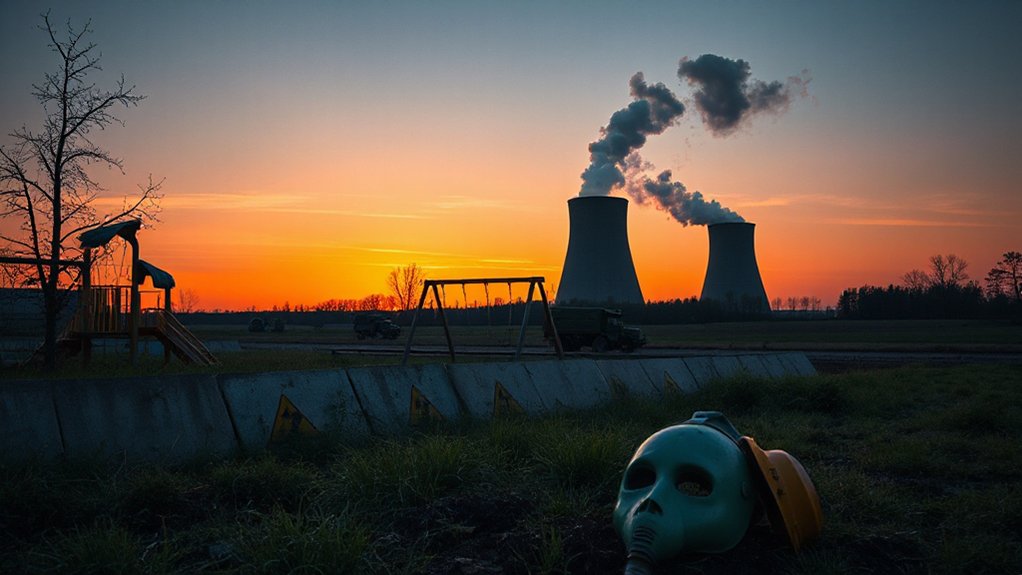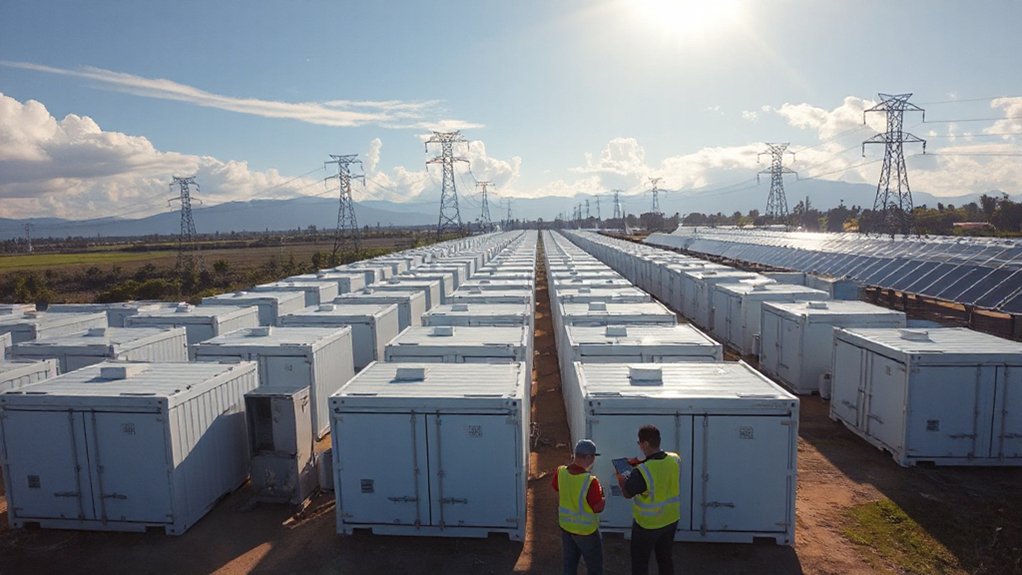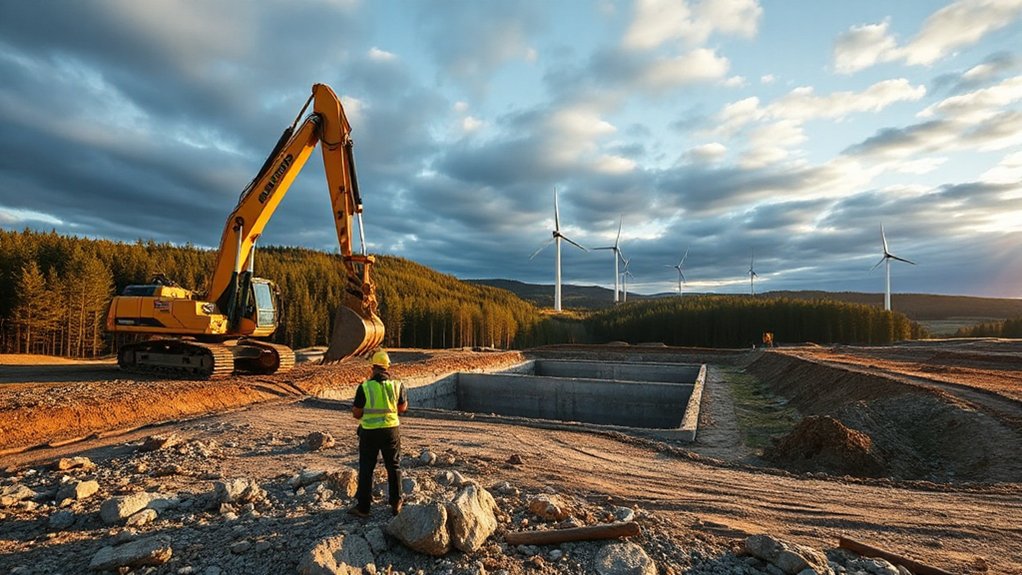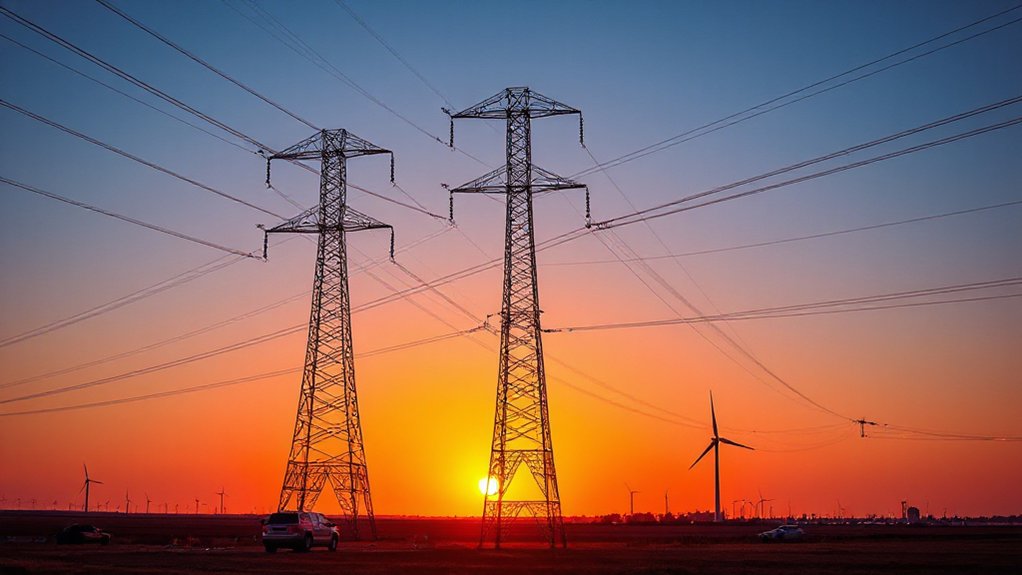The World Bank faces mounting pressure from the U.S. to end its 65-year ban on nuclear energy financing. With bipartisan support from Congress, America argues nuclear power is essential for combating climate change and competing with China and Russia’s growing nuclear exports. While 22 countries pledged to triple nuclear capacity by 2050, Germany and environmental groups oppose the change. The potential shift could reshape global energy policy and development financing strategies worldwide.
As the United States intensifies its pressure on the World Bank to lift its decades-old ban on nuclear energy financing, a major policy shift could be on the horizon. The World Bank has maintained its stance against funding nuclear projects since 1959, making only one nuclear loan in its entire history.
America’s push to end the World Bank’s 64-year nuclear funding ban signals a potential seismic shift in global energy policy.
This policy is now facing significant challenges from American lawmakers. Both Republicans and Democrats in Congress are pushing for change. The House Financial Services Committee has been especially vocal, with new legislation aimed at promoting nuclear energy in the World Bank’s lending practices.
Supporters of lifting the ban point to nuclear power’s role in fighting climate change. They argue that modern nuclear technologies are safer than older designs. At COP28, 22 countries pledged to triple nuclear capacity by 2050, showing growing international support.
However, the proposed change faces strong opposition. Germany leads European resistance to the idea. Many environmental groups continue to worry about nuclear waste and accident risks. Critics also question whether nuclear power is cost-effective compared to renewable energy options. The shift toward renewable energy sources has been significant, with capacity increasing by 45% from 2015 to 2020.
The global nuclear landscape adds urgency to the debate. China and Russia currently dominate nuclear exports to developing nations. American officials worry this gives these countries too much influence over global energy systems. The Biden administration has actively supported the initiative to review the ban as part of efforts to compete with Chinese state-owned banks that already finance energy projects worldwide.
Nuclear power currently provides 24% of the world’s clean electricity, making it a significant contributor to emissions-free energy production globally.
Several compromise proposals have emerged. These include creating a nuclear technology trust fund at the World Bank or building nuclear expertise without immediate lending. The bank might also start by supporting smaller, newer nuclear technologies like small modular reactors.
If the World Bank changes course, it could trigger similar shifts at other development banks. Countries in Africa, Asia, and South America might gain easier access to nuclear technology. The decision will test how global institutions balance climate goals with concerns about nuclear risks.
The World Bank lacks nuclear expertise today, making any policy change complicated. The bank must consider how to build this knowledge while addressing safety concerns and proliferation risks that led to the original ban.
